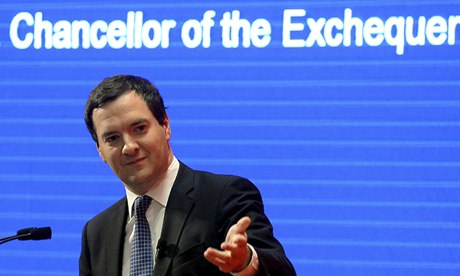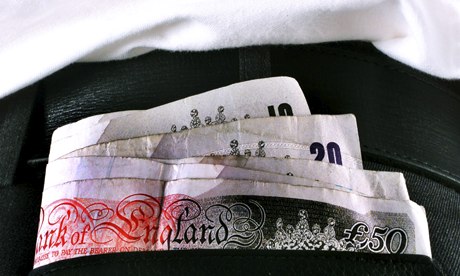Former England keeper Bob Taylor talks about what you need to be world-class behind the stumps
Interview by Scott Oliver in Cricinfo
December 2, 2013

| |||
You obviously started in an era long before specialist coaching. Did you ever have a mentor or coach to bounce ideas off?
Not really. I used to talk to George Dawkes, the wicketkeeper at Derbyshire when I started. And I used to learn by talking to other wicketkeepers. If we played Northants, I'd talk to Keith Andrew, whom I idolised; if we played Somerset, I'd talk to Harold Stephenson, and just try and learn by talking to them.
Not really. I used to talk to George Dawkes, the wicketkeeper at Derbyshire when I started. And I used to learn by talking to other wicketkeepers. If we played Northants, I'd talk to Keith Andrew, whom I idolised; if we played Somerset, I'd talk to Harold Stephenson, and just try and learn by talking to them.
Harold told me: "When you're standing up, try and stand as close as you can, because the closer you are, the less deviation off the bat when the batsman nicks it, the more chance of it hitting your palm rather than the outside of your thumb." Obviously, it still takes a lot of skill. You've got to get your hands outside the line of the ball. But pieces of advice like that - I thought it was wonderful, and it made sense.
One thing that can be difficult when standing up is when a batsman's backlift obscures your view of the ball. How did you cope with that? Did you ever move your feet wider of the stumps?
Not really, no. In my day, Notts had Basher Hassan and Derek Randall, both of whom, when they picked their bat up, had it right across your line of vision, which, as you say, makes life very difficult. Depending on the height of the bat, you can either look over the top of it or underneath it. I felt that when you look over the top it makes you come up too quick, which can be fatal, so I always used to try to get below the bat, so it kept me down.
Not really, no. In my day, Notts had Basher Hassan and Derek Randall, both of whom, when they picked their bat up, had it right across your line of vision, which, as you say, makes life very difficult. Depending on the height of the bat, you can either look over the top of it or underneath it. I felt that when you look over the top it makes you come up too quick, which can be fatal, so I always used to try to get below the bat, so it kept me down.
What are the other key aspects of good wicketkeeping?
The main things are staying down, anticipation, and above all, concentration. I've read lots and lots of articles and books about wicketkeeping coaching, and not one has mentioned the most important part: concentration. Any successful person, whatever walk of life, the name of the game is consistency: being able to do it day in and day out. They are successful because they are focused, and they concentrate on what they are doing. I'm not blowing my own trumpet here, but nobody but me mentions concentration.
The main things are staying down, anticipation, and above all, concentration. I've read lots and lots of articles and books about wicketkeeping coaching, and not one has mentioned the most important part: concentration. Any successful person, whatever walk of life, the name of the game is consistency: being able to do it day in and day out. They are successful because they are focused, and they concentrate on what they are doing. I'm not blowing my own trumpet here, but nobody but me mentions concentration.
That's the hardest part of wicketkeeping. Because when you're playing on the subcontinent - in India, Pakistan or Sri Lanka - on those pitches, when you've got a good batsman in front of you, the wicketkeeper becomes almost redundant. You can be keeping for five hours and 55 minutes and not see the ball, then in the last over of the day a world-class batsman - a Sunil Gavaskar or Javed Miandad, say - gives you a chance that, if you don't take it, you can guarantee that the following day they're going to get a hundred in their conditions. That's what wicketkeeping's all about. You've got to try and concentrate until the last ball of the last over has been bowled.
What can you do to instil that concentration?
The only practical way I know of getting the wicketkeeper to concentrate is, every time the batsman plays the ball - and, as I say, on a good wicket, a good batsman will play the ball more often than not - you should, in that split-second when a batsman plays it, imagine the ball comes through to you and actually go through the motions of taking it. Every time. It stands to reason that if you've got into those habits, when the batsman goes out of his crease and misses the ball, you're halfway there. Your hands will be in the right place and you're watching the ball all the time.
The only practical way I know of getting the wicketkeeper to concentrate is, every time the batsman plays the ball - and, as I say, on a good wicket, a good batsman will play the ball more often than not - you should, in that split-second when a batsman plays it, imagine the ball comes through to you and actually go through the motions of taking it. Every time. It stands to reason that if you've got into those habits, when the batsman goes out of his crease and misses the ball, you're halfway there. Your hands will be in the right place and you're watching the ball all the time.
When wicketkeepers miss stumpings, the two mistakes they make are they get up too soon, so their arms and hands come above their waist, and they anticipate that the batsman is going to hit the ball, and are looking to where they think he's going to hit it. The only way I know to correct that is, when you come up from the crouch position and straighten your knees, keep your hands below your knees so if the ball keeps low you can take it, and if it bounces you can come up in the air with it.
I notice you're already talking about keeping as if it was solely a question of standing up to the stumps.
Standing up to the wicket is what keeping is all about. At first-class level, any competent catcher - a decent slip fielder - can put the gloves on, like Marcus Trescothick, or Graeme Fowler and Graham Gooch when I was playing. They can all keep wicket to a degree. But up to the stumps sorts the men out from the boys. That's where you can see a true wicketkeeper.
Standing up to the wicket is what keeping is all about. At first-class level, any competent catcher - a decent slip fielder - can put the gloves on, like Marcus Trescothick, or Graeme Fowler and Graham Gooch when I was playing. They can all keep wicket to a degree. But up to the stumps sorts the men out from the boys. That's where you can see a true wicketkeeper.
| "The only practical way I know of getting the wicketkeeper to concentrate is, every time the batsman plays the ball - you should, in that split second, imagine the ball comes through to you and actually go through the motions of taking it" | |||
You mentioned keeping on flat Asian pitches. Is that a bigger challenge than standing up on a green top in England?
It's a difficult one. It's about the movement, which you want because it actually helps you concentrate. I said to Ian Healy, who was a terrific keeper, that keeping wicket to Shane Warne must have been a fabulous experience and I'd have loved to have done it. I said to him that it takes ability to keep to someone like Shane Warne, someone who's turning the ball a lot, because you're expecting it to come to you all the time. But to me that's easier than keeping on the subcontinent on flat wickets against top batsmen, when you're almost redundant.
It's a difficult one. It's about the movement, which you want because it actually helps you concentrate. I said to Ian Healy, who was a terrific keeper, that keeping wicket to Shane Warne must have been a fabulous experience and I'd have loved to have done it. I said to him that it takes ability to keep to someone like Shane Warne, someone who's turning the ball a lot, because you're expecting it to come to you all the time. But to me that's easier than keeping on the subcontinent on flat wickets against top batsmen, when you're almost redundant.
You wouldn't have kept to much mystery spin.
No, but I did keep to Derek Underwood. He was a great bowler.
No, but I did keep to Derek Underwood. He was a great bowler.
The most difficult bowler you kept to?
People often ask me that question. For me, it wasn't anybody in particular. It was when you were standing up to a right-arm over - someone who was normally an away-swing bowler to a right-hander - bowling to a left-handed batsman. It's more natural to go down the leg side to a right-hander, for the simple reason that there are more of them in any team. You get used to it. It becomes natural. So, even though a ball down the leg side to a left-hander means I'm going to my stronger hand, my writing hand, it's still more difficult, less natural. You don't do it as often. It's about your foot movement, not which is your strong hand. I saw Ian Healy stump Mark Butcher down the leg side off Shane Warne. They might have rehearsed it, I don't know, but it still takes some doing.
People often ask me that question. For me, it wasn't anybody in particular. It was when you were standing up to a right-arm over - someone who was normally an away-swing bowler to a right-hander - bowling to a left-handed batsman. It's more natural to go down the leg side to a right-hander, for the simple reason that there are more of them in any team. You get used to it. It becomes natural. So, even though a ball down the leg side to a left-hander means I'm going to my stronger hand, my writing hand, it's still more difficult, less natural. You don't do it as often. It's about your foot movement, not which is your strong hand. I saw Ian Healy stump Mark Butcher down the leg side off Shane Warne. They might have rehearsed it, I don't know, but it still takes some doing.
So you recommend practising that then?
The message I try to get over to boys is that at nets they should try to practise more against left-handers than right-handers, because that helps to build up confidence. And when you're at the top of your game, you enjoy that challenge. It's an opportunity for a stumping. And if you're predominantly right-handed, before the match starts, take ten catches into both hands, diving and what-have-you, then ten into your right hand, then 20 in your left. So that gives you confidence with your weak hand, to take that half-chance when it comes.
The message I try to get over to boys is that at nets they should try to practise more against left-handers than right-handers, because that helps to build up confidence. And when you're at the top of your game, you enjoy that challenge. It's an opportunity for a stumping. And if you're predominantly right-handed, before the match starts, take ten catches into both hands, diving and what-have-you, then ten into your right hand, then 20 in your left. So that gives you confidence with your weak hand, to take that half-chance when it comes.
It was a bit unfortunate for you that you had Alan Knott around for much of your career, until World Series Cricket came along, really. Was it difficult being a permanent understudy?
I'd always got confidence in my ability; it's just that there was someone else who was better than me. His batting record speaks for itself. You have to be philosophical about things.
I'd always got confidence in my ability; it's just that there was someone else who was better than me. His batting record speaks for itself. You have to be philosophical about things.
Did you and he discuss the finer points of wicketkeeping, or was there too much rivalry for that?
We did do, and we have done subsequently. Not that we always agreed. I used to coach Jack Russell, Paul Nixon and people like this at Lilleshall, while Knotty coached Alec Stewart down at Lord's. Then Knotty became more full-time with England and I think that's when Jack started to get all his idiosyncrasies. Whether they were standing up or back, Jack and Alec were facing cover for a period, but at the last second they were turning to be square-on. I asked Jack, Alec, and eventually Knotty what the theory was behind this, and he said that, if you're standing up, particularly if the ball bounced, your hips were out of the way.
We did do, and we have done subsequently. Not that we always agreed. I used to coach Jack Russell, Paul Nixon and people like this at Lilleshall, while Knotty coached Alec Stewart down at Lord's. Then Knotty became more full-time with England and I think that's when Jack started to get all his idiosyncrasies. Whether they were standing up or back, Jack and Alec were facing cover for a period, but at the last second they were turning to be square-on. I asked Jack, Alec, and eventually Knotty what the theory was behind this, and he said that, if you're standing up, particularly if the ball bounced, your hips were out of the way.
I said to Knotty, "Well, if the ball bounces, it's an automatic reaction for your hips to turn, anyway. They've got to try and take the ball. I can see where you're coming from, but doesn't it make it harder for a normal wicketkeeper - not a Test wicketkeeper, who's got ability, or a county keeper even - to take the ball down the leg side?" He'd have to over-correct his position. There was no automatic explanation, so I thought it's just a theory that's being passed on. I said to Alec Stewart, "You stand open, but to take the ball you correct your position. Why do it in the first place?" He said: "Because Knotty told me."

| |||
What about taking the ball in front of the stumps and knocking the bails off on the back-sweep of the hands?
It's all well and good - I used to do that years ago - but you're very reliant on accurate throws from the outfield, otherwise you can lose where the stumps are.
It's all well and good - I used to do that years ago - but you're very reliant on accurate throws from the outfield, otherwise you can lose where the stumps are.
And why do wicketkeepers take the ball like a matador with his cape, taking their body away from the ball? It's all come from Australia. They take the ball away from the body. I've talked to Rod Marsh, I've talked to Ian Healy, I've talked to Adam Gilchrist, and I can't get a straightforward answer. I've spoken to Bruce French - who's teaching the theory as well - and he can't give me a proper answer, other than: "It inspires the rest of the fielders." I'm sorry, I don't understand.
I coached Frenchy when he started at Nottingham. I said, "Bruce, we've always been taught - particularly standing back - that you get your body behind the line of the ball, so you've got a second line of defence. It encourages you to move your feet". Particularly in this country, where the ball will dip and swerve after it goes past the bat - that's all the more reason why you have to get your body behind the line of the ball.
Which keepers of your era did you rate?
Outside of me and Knotty, Paul Downton, David Bairstow, Jack Richards and Roger Tolchard were all good keepers.
Outside of me and Knotty, Paul Downton, David Bairstow, Jack Richards and Roger Tolchard were all good keepers.
And of recent times?
I think Dhoni's been fantastic. He's a superstar in India, a multi-millionaire, but to captain, to keep wicket, and bat - it's phenomenal.
I think Dhoni's been fantastic. He's a superstar in India, a multi-millionaire, but to captain, to keep wicket, and bat - it's phenomenal.
I think the best English keepers over the last ten years have undoubtedly been James Foster and Chris Read. Duncan Fletcher did a lot of good for English cricket, I'm sure, but he had his favourites, and I think Geraint Jones was probably one of his favourites. The only thing I can think of [why Read didn't play more] is that he wasn't a good tourist. He was playing second fiddle to Alec Stewart, and I've had enough experience of that.
You've got to be philosophical, and when you're playing against New South Wales or Queensland, you've got to try your best. If I played well then it would push Alan Knott, keep him on his toes, which is the objective of a reserve, and only benefits the team. You've got to do your best - both on and off the field. As 12th man, in a hot climate, you've got to make sure players who are flogging themselves in 90 degrees of heat and 80% humidity are looked after. I don't know, but perhaps Chris Read wasn't doing his duties properly and it upset Duncan Fletcher - I don't know. But he was never really given a chance. And the same with James Foster. And they are both, I think, the top wicketkeepers - and that's in front of Matt Prior, Steven Davies, Craig Keiswetter, whoever.
And finally, your nickname was "Chat", so what about the keeper as the voice on the field?
I say to schoolboys: if you want to improve, forget about all this sledging. If you're concentrating on sledging the batsmen, then you're not concentrating on the job you're supposed to be doing. Next to the captain, the wicketkeeper is the second most important player on the field. You're the inspiration to the rest of the fielders. You have to be neat and tidy to set the tone. That's what a wicketkeeper should be concentrating on. That and concentration.
I say to schoolboys: if you want to improve, forget about all this sledging. If you're concentrating on sledging the batsmen, then you're not concentrating on the job you're supposed to be doing. Next to the captain, the wicketkeeper is the second most important player on the field. You're the inspiration to the rest of the fielders. You have to be neat and tidy to set the tone. That's what a wicketkeeper should be concentrating on. That and concentration.








